What is a Pharmacy Technician?
There are many things that a Pharmacy Technician is responsible for behind the counter.
Not only do they have to count the medications, fill them, and prepare them for pickup from customers, but they are also required to have computer knowledge and customer service skills.
This career requires a positive attitude and compassion, as well as math and medical terminology familiarity.
Working as a Pharmacy Technician can be a great lifelong career, or it can be a gateway to a career as a Pharmacist.
Duties
Oftentimes, you will find a Pharmacy Technician counting medication or speaking with customers, but there are many other duties that are a requirement of this job.
These tasks may include:
- Processing insurance claims
- Referring customers to the Pharmacist
- Organizing inventory
- Maintaining equipment
- Answering phone calls
- Calling doctors to authorize prescriptions
- Filling bottles with medications
- Typing prescription information into the database
Salary
On average in the United States, a Pharmacy Technician makes about $6,740 a year.
Once you earn certification and gain experience as a Pharmacy Technician, you can expect a higher salary, closer to $47,580 in some areas.
If you are expecting to make that much money right out of school, you are mistaken.
Those who have just graduated from a program will start out making about $28,740 a year as a Pharmacy Technician.
Working in larger hospitals can offer higher salaries than working in smaller clinics.
Also, becoming specialized and having many years of hands-on knowledge as a Pharmacy Technician can open doors to promotions and raises.
Annually National Average Salary: $43,330
Average Annual Salary by State
| State | Avg. Annual Salary |
|---|---|
| Alabama | $37,030 |
| Alaska | $49,810 |
| Arizona | $45,260 |
| Arkansas | $37,170 |
| California | $55,710 |
| Colorado | $47,150 |
| Connecticut | $43,220 |
| Delaware | $42,080 |
| District of Columbia | $54,030 |
| Florida | $41,620 |
| Georgia | $39,740 |
| Hawaii | $44,260 |
| Idaho | $44,060 |
| Illinois | $42,850 |
| Indiana | $40,640 |
| Iowa | $41,080 |
| Kansas | $39,820 |
| Kentucky | $38,570 |
| Louisiana | $39,540 |
| Maine | $40,260 |
| Maryland | $42,170 |
| Massachusetts | $46,450 |
| Michigan | $40,960 |
| Minnesota | $46,430 |
| Mississippi | $38,260 |
| Missouri | $39,960 |
| Montana | $43,270 |
| Nebraska | $40,610 |
| Nevada | $44,850 |
| New Hampshire | $42,540 |
| New Jersey | $42,120 |
| New Mexico | $42,900 |
| New York | $43,760 |
| North Carolina | $40,680 |
| North Dakota | $45,870 |
| Ohio | $41,150 |
| Oklahoma | $37,410 |
| Oregon | $50,440 |
| Pennsylvania | $39,250 |
| Rhode Island | $42,360 |
| South Carolina | $40,100 |
| South Dakota | $41,140 |
| Tennessee | $38,940 |
| Texas | $42,990 |
| Utah | $45,400 |
| Vermont | $41,360 |
| Virginia | $41,650 |
| Washington | $55,390 |
| West Virginia | $37,910 |
| Wisconsin | $41,510 |
| Wyoming | $43,380 |
| Guam | $30,580 |
| Puerto Rico | $29,760 |
| Virgin Islands | $40,890 |
Annual Average Salary: Top 5 States
The top earning state in the field is California, where the average salary is $55,710.
These are the top 5 earning states in the field:
* Employment conditions in your area may vary.
How to Become a Pharmacy Technician
Step 1 Attend a Program
There are many different types of programs available to aspiring Pharmacy Technicians.
Some Pharmacy Technician programs can be found online and take anywhere from 7 months to 3 years to complete.
Be wary of online Pharmacy Technician programs, as some of them may not be accredited.
Choose a program that offers hands-on experience, in order to get the most education out of the classes.
Some programs may even offer externships with certain companies, which can lead to a great career once you graduate.
There are several things to be learned in a Pharmacy Technician program, including:
- Billing and Reimbursement
- Management and Operations
- Pharmacology
- Sterile and Nonsterile Compounding
- Law and Regulations
- Math Calculations for Pharmacy Technicians
If you are interested in earning an Associate’s degree, there are some programs available at community colleges and universities across the country.
These programs can take around two years, and can lead to higher-paying careers as a Pharmacy Technician, or beyond.
Courses you can expect to take in a Pharmacy Technician Associates program include:
- Organic Chemistry
- Anatomy and Physiology
- Biology
- Medical Ethics
- Calculus
Step 2 Gain Experience
hands-on experience while you are still in school.
This can be a great way to gain knowledge and familiarity before you begin looking for a career.
The best way to get the right experience in this career is to get out there and do it.
Many places to work as a Pharmacy Technician include:
- Hospitals
- Community pharmacies
- Mail service pharmacies
- Long term care facilities
- Nursing home pharmacies
In order to become certified in most states, it is likely that you may need a specific number of hours of experience.
Often when working in an independent pharmacy, a Pharmacy Technician will have typical 9-5 hours, but in hospitals and other facilities, there can be a need to work overnights.
Having experience in various types of settings and shifts can have an impact on your career.
Step 3 Become Certified
Once you have a degree or certificate from an accredited program, then you can think about earning a certification as a Pharmacy Technician.
Two of the associations that hand out certifications for Pharmacy Technicians are:
- Pharmacy Technician Certification Board
- National Health Career Association
In order to be eligible for the exam given by the Pharmacy Technician Certification Board, you must meet the following requirements:
- Have graduated from an accredited program
- Pass a background check
- Pass the exam
This exam costs around $130 to take and is computer-based.
The National Health Career Association offers the certified Pharmacy Technician credential.
You will also need to have graduated from an accredited program to enroll in this certification.
At least 1200 hours of experience are also required in order to sit for this exam.
This exam costs $150 to complete and can be taken online or in person.
Possessing a certification will provide easier access to career opportunities and promotions.
Step 4 Find a Specialization
Having a niche as a Pharmacy Technician can set you apart from the rest.
Being specialized means that you are very knowledgeable in the area that you work, which can lead to various promotions and raises.
Some of the areas of expertise for a Pharmacy Technician include:
- Compounding
- Sterile products
- IVs
- Chemotherapy
In order to earn credentials in these specializations, it’s important to contact your local organization or employer.
This way you can see if you need to:
- Enroll in an education program
- Have a certain number of hours of experience
- Take an exam
Once you gain enough experience and education, you can expect to eventually earn a career as a Pharmacist.
Popular Programs
Education
Pharmacy Technicians are able to enroll in a couple of different types of programs.
Each has its own benefits and negative aspects, so it’s up to you which one you choose.
Some aspiring Pharmacy Technicians choose to enroll in a short program, which can last anywhere from 7 months to one year, depending on the program.
You can find many of these programs online, but there are also some offered through trade schools or community colleges throughout the country.
Then, there are people who choose to enroll at a college or university in order to gain an Associate’s degree.
This can take around two years and can lead to more career opportunities.
Both types of programs will likely provide an externship and hands-on experience as a Pharmacy Technician before graduation.
Some of the types of classes that you can expect in a short-term program are:
- Pharmacy Operations
- CPR
- Intro to Pharmacology
- Pharmacy Software Applications
With this type of degree, you can expect entry-level jobs as a Pharmacy Technician.
Some of the types of things you should expect to learn through a Pharmacy Technician program, whether online or in-person, involve:
- Learning how to count and measure medication
- Understanding and using medical terms
- Hands-on experience with insurance claims
For those looking to enter into an Associates degree program, the courses can go even more in-depth into the math and science behind pharmacology.
The courses that you can expect to take throughout an Associates degree program include:
- Drug/Dosage Interaction
- Pharmacy Law and Ethics
- Human Body Diseases
- Pharmaceutical Procedures
- Body Systems
- Support Terminology
Possessing an Associate’s degree can be enough to maintain a great career as a Pharmacy Technician, but if you decide to earn a Bachelor’s degree, many new doors can open.
A Bachelor’s degree can take another 2-4 years, depending on the school that you attend, and whether you go full time or part time.
With a Bachelors degree, the types of opportunities you can expect include:
- Pharmacy Compliance Technician Specialist
- Laboratory Technologist
- Pharmacy Technician Instructor
- Inventory Technician Specialist
Video About The Career
Certification and Licensing
Once you gain experience as a Pharmacy Technician, you should think about becoming certified.
This way, you can show employers and patients that you know what you are doing in your job, and they can trust you to do it right.
Two of the accredited associations to earn certification with are:
- The Pharmacy Technician Certification Board
- The National Health Career Association
Both of these associations provide different certifications for a variety of medical career fields.
For Pharmacy Technicians, the ones to be interested in are the following:
- Certified Pharmacy Technician
This certification given by the Pharmacy Technician Certification Board can be obtained after passing an exam.
In order to be eligible for this certification, you must have graduated from an accredited program in the last 60 days, or have a minimum of 500 hours of work experience as a Pharmacy Technician.
The exam costs around $130 and can be done online or in person.
There are many topics on the exam, including:
- Medications
- Federal Requirements
- Patient Safety and Quality Assurance
- Order Entry and Processing
The Pharmacy Technician certification from the National Health Career Association will provide the same benefits to your career.
This certification also requires that you pass an exam, which will cost around $117.
When it comes to scoring this exam, it’s on a sliding scale.
This means you will either learn if you are above, below, near passing standard, or at passing standard.
If you are at passing standard or above, this means you have passed the exam.
To get the most out of this exam, make sure you study the following topics:
- Laws and Regulations
- Drugs and Drug Therapy
- Dispensing Process
- Medication Safety and Quality Assurance
There are study guides available online for both exams, which can help tremendously.
Earning a certification as a Pharmacy Technician can allow you to step into more senior roles in the field of Pharmacology.
Certification Example:
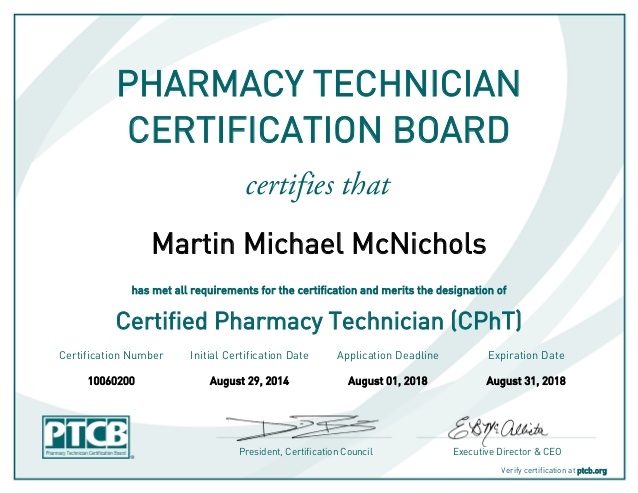
Average Training Program Duration: 1-2 Years
Some training programs can take as little as seven months to complete, which can provide a very basic understanding of the role of this career.
However, there are other programs that can last one to three years in some areas.
The average program to become a Pharmacy Technician takes about 18 months to two years.
Most two year programs provide an Associate’s degree after graduation.
Both types of programs should allow hands-on experience in the field of pharmacology.
Job Outlook
Pharmacy Technicians will likely always be a necessity because medical needs will continue to rise.
Over the next decade, there will be a growth of about 4 percent in career opportunities for Pharmacy Technicians.
This growth curve is about the same for all pharmacy occupations.
The rise in this career is due to the aging population, and the necessity for medications.
With the increased popularity of flu shots, Pharmacy Technicians will be in demand to perform various roles such as taking over pharmacy operations while the Pharmacist provides the shots.
Employment Growth Projection: 4%
2020
2030
That's a higher than average projected growth of 16,598
Should You Become a Pharmacy Technician?
Overall Satisfaction: High

Having a career as a Pharmacy Technician takes great attention to detail, so sometimes it can be stressful.
However, those who work in this field say that they enjoy their jobs for the most part.
There are many opportunities for advancement and the hours are typically 9-5 for most pharmacies.
Being certified and having hands-on experience in this career will get you far.
Earning an education can lead to a career as a Pharmacist, which can offer better pay and a more satisfying career for some people.
Average Salary: Low

Working as a Pharmacy Technician isn’t going to make you rich to start, with a salary of only $28,740.
However, after years of experience and certifications, it’s possible to make a living on this salary.
The average Pharmacy Technician makes around $36,740 a year.
After gaining hands-on knowledge, it can be expected to make up to $47,580 in this career.
States that have higher populations, like California, have Pharmacy Technicians making around $45,000.
While in smaller states like New Jersey, a Pharmacy Technician earns closer to $34,000 a year.
Job Growth Outlook: High

If you are looking to start a career as a Pharmacy Technician, you should know that this career will grow around four percent over the next decade or so.
This is an average rise across all pharmacy careers.
The reason for this growth is that the aging population is requiring more medical intervention and treatment.
This could include medication for diabetes and other chronic illnesses.
More medications mean a higher demand for Pharmacy Technicians.
Pharmacy Technicians will likely be needed for many years to come.
Education Duration: 1-2 Years

Pharmacy Technicians have a variety of choices when it comes to education.
Some choose to enter into a program that lasts anywhere from 7 months to 3 years, which can earn a certificate or diploma.
And then there are other Pharmacy Technicians who would rather earn an Associate’s degree.
This degree can take about two years to complete and can lead to multiple career opportunities.
On average, it takes about two years to become a Pharmacy Technician.
Personal Skills Needed

It takes math and pharmaceutical knowledge to be a great Pharmacy Technician, but there are some other great skills needed to do well in this career.
In order to have success as a Pharmacy Technician, you should have the following qualities:
- Communication skills
- Adaptability
- Problem-solving skills
- Empathy
- Ability to work with a team
- Organization skills
- Attention to detail
- Computer knowledge
- Critical thinking skills
- Patience
- Compassion for others
- Ability to prioritize
- Good ethics and morals
- Ability to multitask
- Management skills
Frequently Asked Questions
How much does a Pharmacy Technician make?
On average across the United States, a Pharmacy Technician makes around $36,740 a year.
That salary comes with education and certification, with minimal education and little to no experience, a Pharmacy Technician should expect a salary of around $28,740 a year.
After gaining hands-on experience, working toward certifications and specializations, and earning a degree, a Pharmacy Technician can expect to make around $47,580 a year.
How long does it take to become a Pharmacy Technician?
The time it takes to become a Pharmacy Technician depends on the type of education you receive.
Some programs to earn a Pharmacy Technician certificate or diploma can take anywhere from 7 months to several years.
An Associate’s degree takes about two years to finish, while a Bachelor’s degree can take four years.
It can take anywhere from 7 months to four years to become a Pharmacy Technician.
What does a Pharmacy Technician do?
There are many behind the scenes responsibilities for Pharmacy Technicians.
They have to count medications, restock medications, and make sure all medicine is in the correct spot as well as the correct container.
Not only that, but a Pharmacy Technician will have to input information into the computer system, and also help customers.
Often, they could be doing all of this at the same time.
What is the demand for Pharmacy Technicians?
There will always be a necessity for Pharmacy Technicians.
Due to advancements in medicines and technology, more people are able to receive treatment for their illnesses.
Pharmacy Technicians should see a growth in career opportunities around four percent over the next decade.
This is right on track with other careers in the pharmacology field.
How much does it cost to become a Pharmacy Technician?
Pharmacy Technician programs can run as cheap as $1,500 in some areas.
Other programs can cost as much as $5,000, but can also include certain perks line externships with specific companies and state-of-the-art learning materials.
Working toward an Associate’s degree can cost anywhere from $10,000 to $15,000.
This means that it can cost anywhere from $1,500 to $15,000 to become a Pharmacy Technician.
 Pharmacy Technician Info by State
Pharmacy Technician Info by State

- Alabama
- Alaska
- Arizona
- Arkansas
- California
- Colorado
- Connecticut
- Delaware
- Florida
- Georgia
- Hawaii
- Idaho
- Illinois
- Indiana
- Iowa
- Kansas
- Kentucky
- Louisiana
- Maine
- Maryland
- Massachusetts
- Michigan
- Minnesota
- Mississippi
- Missouri
- Montana
- Nebraska
- Nevada
- New Hampshire
- New Jersey
- New Mexico
- New York
- North Carolina
- North Dakota
- Ohio
- Oklahoma
- Oregon
- Pennsylvania
- Rhode Island
- South Carolina
- South Dakota
- Tennessee
- Texas
- Utah
- Vermont
- Virginia
- Washington
- West Virginia
- Wisconsin
- Wyoming
Pharmacy Technician Resources
- 14 Pros and Cons of Being a Pharmacy Technician
- Difference Between Pharmacy Tech and Pharmacy Aide
- Difference Between Pharmacy Technicians and Pharmacists
- How Much Does Pharmacy Technician School Cost?
- How to Become a Pharmacy Tech Without Going to School
- Online Pharmacy Technician Training Programs
- The Career Path of a Pharmacy Technician
- What is PTCB Certification?
More Medical Careers
| Career | |
|---|---|
 | Certified Nursing Assistant Working as a Certified Nursing Assistant is an entry-level role that will give you hands-on experience when you are ready to take the next step in your medical career. |
 | Dental Assistant Dental assistants help dentists to provide patient care, keep records, and care for the dental equipment. |
 | Dental Hygienist Dental hygienists take care of cleaning teeth to promote hygiene and help avoid cavities and gum problems. |
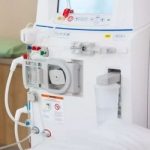 | Dialysis Technician Dialysis technicians maintain and monitor dialysis equipment, and also act as primary caregivers for patients undergoing dialysis treatment. |
 | Dog Groomer Dog groomers attend to grooming dogs, usually at dog salons or big pet-related chain stores. |
 | Healthcare Administrator Healthcare administrators – also known as healthcare executives or health services managers – are responsible for the planning, direction, and coordination of medical and health services. |
 | Home Health Aide Home health aides provide home care to individuals who require assistance in their day-to-day living. |
 | Licensed Practical Nurse (LPN) Licensed Practical Nurses provide basic nursing care to patients and work with Registered Nurses and Doctors. |
 | Medical Assistant Medical assistants support the work of physicians, nurses, and other health professionals. |
 | Medical Biller and Coder Medical billers and coders manage, organize, and code various health information data. |
 | Medical Technologist Medical laboratory technologists collect bodily samples and conduct tests to analyze those samples. |
 | Medical Transcriptionist Medical transcriptionists go over voice recordings to convert them into written texts. |
 | Nutritionist As a Nutritionist, you’ll be tasked with creating meal plans, counseling, and understanding dietary restrictions for all types of clients. |
 | Patient Access Representative The work involves helping people to orient themselves to the space and everything that is going on. |
 | Patient Care Technician Patient care techs work directly with patients helping them with daily activities and assist the medical staff by measuring and monitoring the patients' vital signs among other tasks. |
 | Phlebotomist As a Phlebotomist, it will be your responsibility to take blood samples from patients and send them to the lab for further testing. |
 | Physical Therapist Assistant Physical therapist assistants provide physical therapy services to patients and aide to physical therapists. |
 | Professional Recovery Coach A professional recovery coach is a life coach who works with someone during their addiction recovery process. |
 | Radiation Therapist Allied health provisional who specializes in radiation oncology treatments. |
 | Registered Health Information Technician Registered Health Information Technician (RHIT) help store and verify accuracy of health records as well as analyze patient data. |
 | Registered Nurse (RN) Registered Nurses provide hands-on patient care in various settings, mainly hospitals, and clinics. |
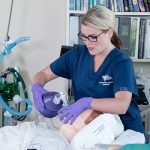 | Respiratory Therapist Respiratory therapists treat and care for patients who experience breathing difficulties. |
 | Sterile Processing Technician A sterile processing technician is a healthcare professional who is responsible for preparing, sterilizing, maintaining, packaging, and storing medical tools and equipment used in surgical and other medical procedures. |
 | Surgical Technologist Surgical technologists – also known as operating room techs – prepare operating rooms and assist doctors and nurses during surgical procedures. |
 | Vet Office Manager Veterinary office managers work to make sure that the daily operations run smoothly and efficiently at veterinary hospitals or veterinary clinics. |
 | Veterinary Assistant Veterinary Assistants work closely with Veterinarians to handle routine animal care. |
 | Veterinary Technician Veterinary Technicians assist veterinarians as well as diagnosing and treating animals, mostly in private clinics. |
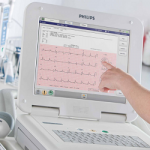 | EKG Technician EKG technicians test and monitor the cardiovascular system. |
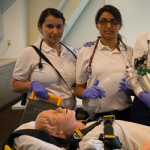 | EMT Trained emergency medical technician that arrives at the scene to provide medical services such as resuscitation. |
 | MRI Technologist MRI Technologists use a machine to scan the body and create a detailed image of the inside for doctors to analyze. |
 | Optician Opticians are technicians and salespersons at the same time who spends most of their day talking to customers, reading prescriptions written by doctors, and dispensing glasses and lenses. |
 | Ultrasound Technician Ultrasound technicians aid physicians in monitoring and diagnosing patients through the use of ultrasonic imaging technology. |
 | X-Ray Technician X-Ray Technicians are medical imaging professionals who use technology to visualize the inside of our bodies. |














